
The Tamarindo Integral Development Association (ADIT) denounced how the excess of events in the district, such as concerts and parties, affect the life of community residents and the environment.
Urs Schmid, president of the ADIT, said that these events are almost daily, but that they are affected even more at the end of each year and during Holy Week (Easter), when the influx of visitors increases.
A study of noise pollution prepared by an occupational health engineer at the request of the Association showed that the noise caused by different events at the end of the year exceeded what is allowed by the Regulation for the Control of Noise Pollution of the General Health Law.
The document pointed out that while the sound levels in a commercial area at night are allowed to be maximum 55 decibels, in Tamarindo they reach levels of 81 decibels (see infographic).
All the measurements we made, every day, exceeded the maximum allowed by the law,” said the engineer in charge of the report, Raquel Larios.
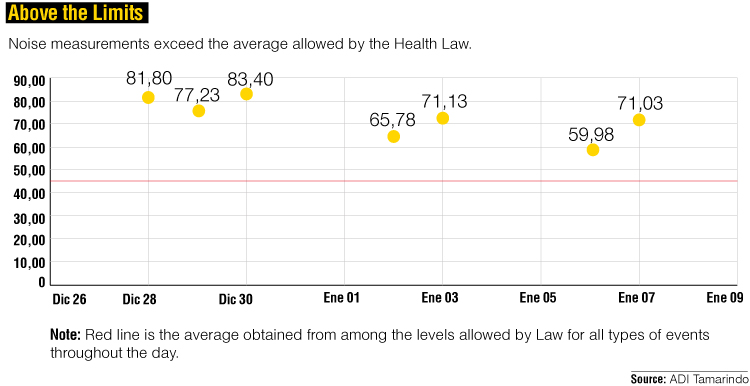
The Municipal Council of Santa Cruz has the power to approve or reject the events that take place in Tamarindo and can establish the rules for carrying out the events. However, it does not have a regulation for this, despite the fact that since 2015 it has promised to do so.
Schmid stated that the ADIT is mindful that holding events boosts the local economy “but that more control should exist.”
Selina is one of the companies that held events at the end of the year. Its manager Andrés Barrantes justified that none of its events are carried out without the permits of the municipality or the Ministry of Health.
Main Effects
The Las Baulas National Marine Park is about 12 miles from Tamarindo and, according to its administrator, Rotney Piedra, events on the beach and in other locations affect the protected wild area.
“When the events are at night and occur during the sea turtles’ nesting season (between October and February), the impact of light pollution is added,” the administrator wrote in a letter provided by the Tamarindo ADI, of which The Voice of Guanacaste has a copy.
Light can influence the behavior of turtles. It can scare them and they could even abort the process of making the nest, leaving the eggs exposed and at the mercy of a predator.
Refuge managers recommend seeing a turtle arrival with guides certified by them.
Piedra indicated that, in addition to noise and artificial light, the development of these activities generates a significant amount of solid waste that, when not well managed, reaches the sea, and several marine species confuse the waste with food.
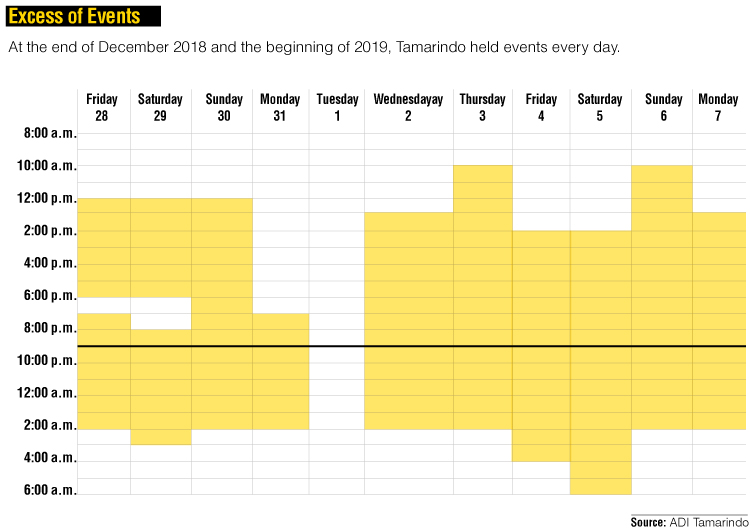
Plastic bags, straws, pen caps and other small objects are the ones that birds, fish and turtles ingest the most, according to data from the NGO Marviva, which fights against marine pollution and illegal fishing.
The Coordinator of the Ecological Blue Flag program for the community of Tamarindo, Jordi Rivera, added that the lack of human resources to clean up the community 24 hours a day causes large amounts of garbage to accumulate in the streets.
“The organizations that clean up the community do not get any support from the companies that organize the events,” commented Rivera.
In addition, the “chaos” of streets jammed by the number of people that the activities attract and the way this makes it impossible to respond to emergencies are other concerns expressed by neighbors and organizations in the area.
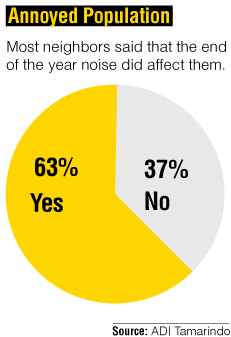
The engineer, Larios, indicated that the consequences to people specifically on the issue of noise can be psychological, physical and even social.
Some of them, in her opinion, range from sleep disorders to hearing loss, discomfort and stress.
Destination in Sight
Tamarindo being the epicenter of activities is no coincidence. The report “Tourism Planning in Coastal Areas of Costa Rica” (in Spanish) shows how tourism development in towns such as Tamarindo have developed dramatically and without control, at least in the last 15 years.
According to the document, the high concentration of hotels and rooms available in a very small area exemplifies this growth in tourism.
Added to this growth are the current environmental problems, conflicts over the use of water, accelerated infrastructure development, and construction right in the public area, among other aspects.
Slow-Moving Solutions
To reduce the consequences of noise and the excess of events in the Santa Cruz district, the Tamarindo ADI suggested to the municipal council the cr
eation of a municipal regulation to obtain permits and regulate mass events.
The treasurer of the ADI, Helen Soto, explained that in December 2015, the council had reached an agreement to work on this regulation, but it never materialized.
The muni does not have mass event regulations; there are national laws and regulations but there is nothing at the local level. We know that it is something that is not achieved overnight, but we are going to follow up on it,” Soto continued.
During a session of the council, it’s president, Omar Cruz, said that there is willingness to process this regulation and that they are aware that “action must be taken on the matter,” but no date has been set for having the final document.
Oscar Guevara, legal advisor to the council, explained that the local representatives can regulate all kinds of activities and that the responsibility falls precisely on them because they are authorized to approve or reject an activity.
Another of the ADI’s recommendations was to consider the opinions of the community and the Ministry of Health when drafting this regulation. In addition, the approval of requested event permits and patents should only be granted if the City has the necessary City Police personnel available to be present in the area of the event.


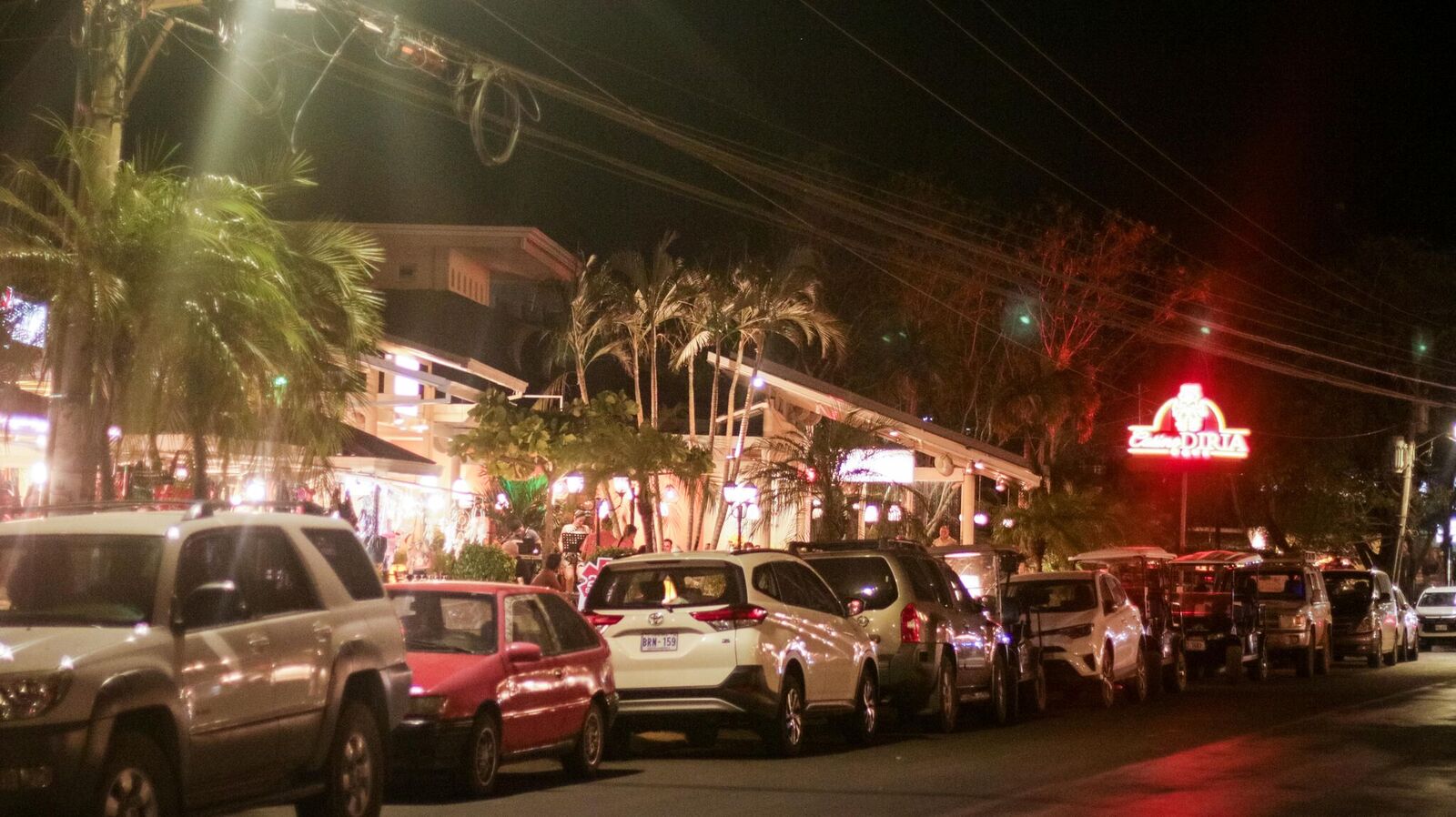
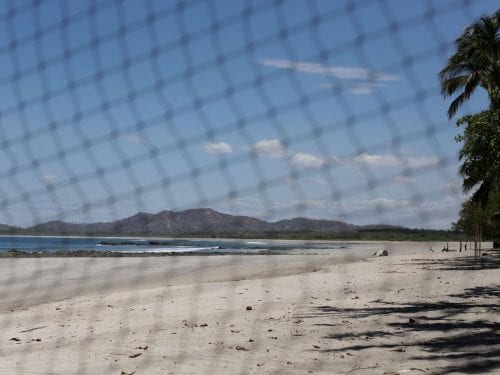
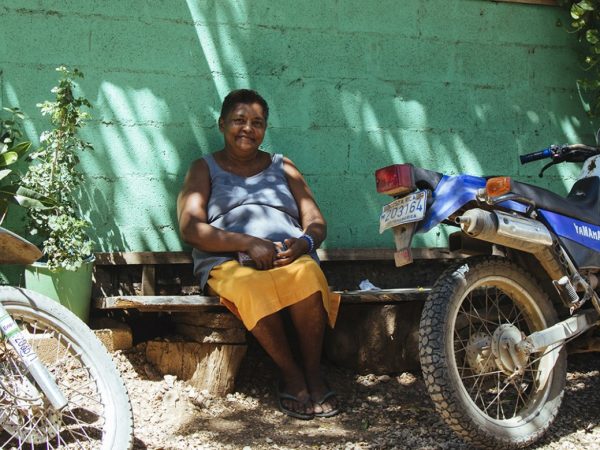
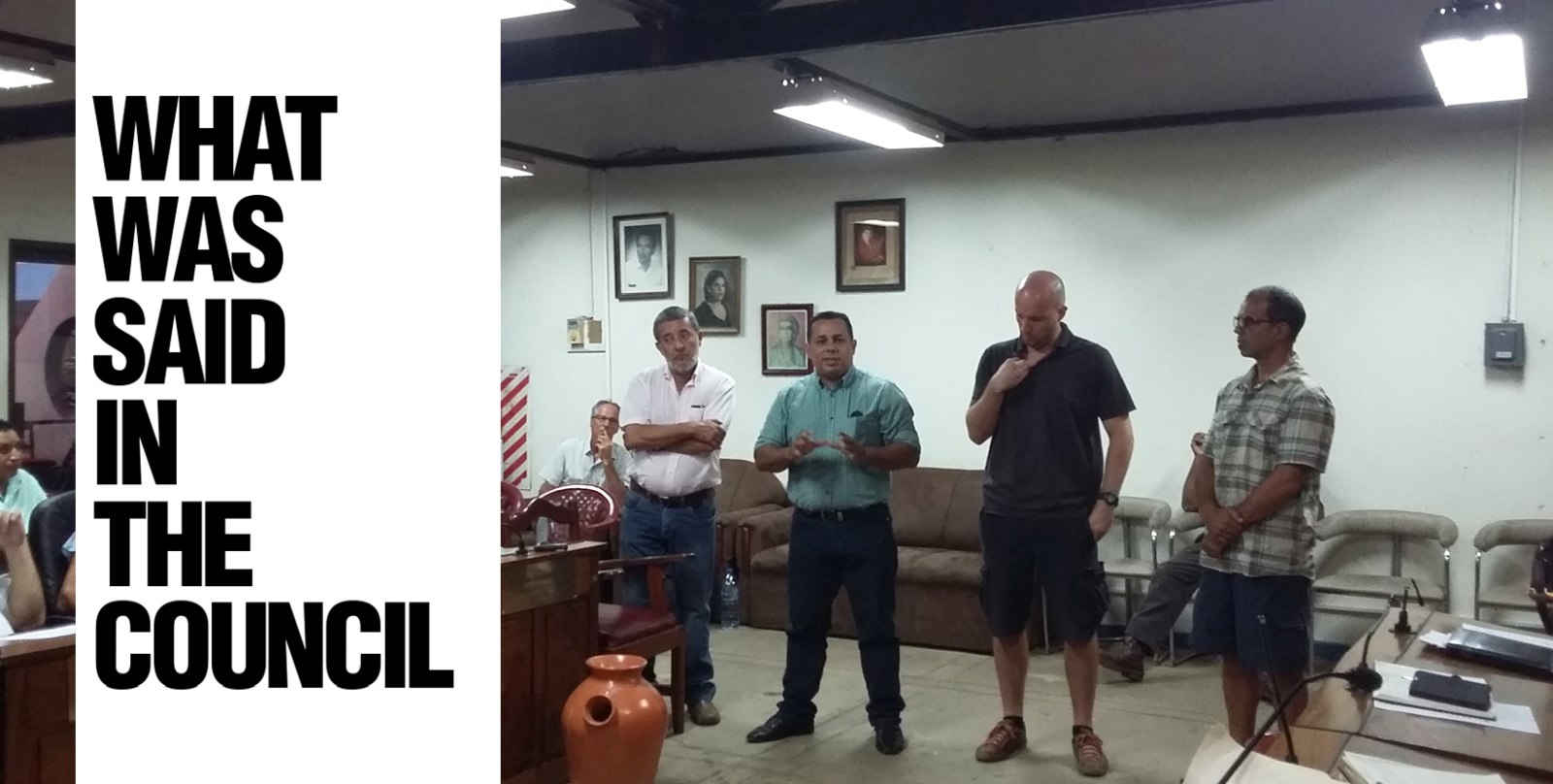

Comments